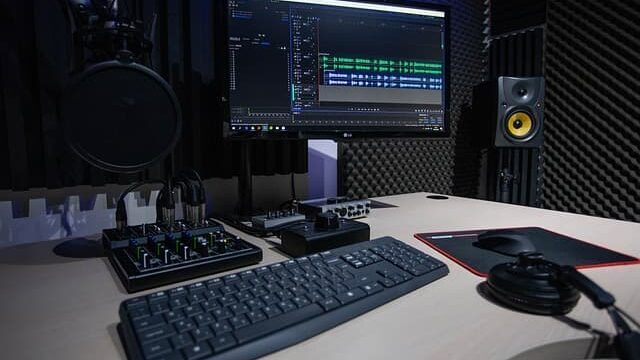Modern radio remains in demand despite the rise of digital formats such as podcasts, video streams, and online entertainment, which have also become a part of everyday leisure. People still turn on the radio to hear a live voice, real emotions, and music selected by a human rather than an algorithm. This means that the profession of a radio host has not disappeared—it has gained new momentum. But to succeed in this field, a good voice alone is not enough. Knowledge, practice, and the ability to perform live are essential. That’s why professional radio host courses are becoming increasingly popular in the Czech Republic and beyond.
For those looking to take a break from their daily routine, we recommend nove online casino in the Czech Republic, which features trusted gaming platforms with a wide selection from leading global providers.
What Do Modern Radio Host Courses Include?
Radio host courses are not just about diction lessons. They provide comprehensive training that covers various aspects of the profession. First is voice work: participants learn proper breathing techniques, how to emphasize key points, and how to maintain vocal energy even during long broadcasts. Specialists help develop clear diction, eliminate filler words, and gain control over tone and intonation.
Secondly, scriptwriting skills are essential. A radio host must be able to build a logical structure for a broadcast, improvise, insert live commentary, and still keep the listener’s attention. Courses also teach how to create playlists, choose themes, and interact with guests.
The third key element is technical skills. Modern radio hosts often work with equipment such as microphones, mixing consoles, and audio editing software. Quality courses always include practical modules, allowing students to use real equipment, adjust sound, record promos, or even create their own mini-programs.
Some schools go even further, incorporating media law basics, journalistic ethics, and self-promotion strategies—since in the digital age, promoting yourself on social media is just as important as managing a live broadcast.
Online or Offline: What to Choose?
In the Czech Republic, hybrid learning is becoming increasingly popular. This combines online sessions with live studio workshops. Online formats are convenient for theory, case analysis, and reading practice. Offline sessions offer the opportunity to train in a real studio environment. In addition, hybrid courses allow you to combine learning with work or studies without sacrificing quality.
When choosing a format, it’s important to consider your current level. Beginners benefit from face-to-face interaction with instructors, direct feedback, and the chance to observe others at work. More experienced participants may opt for online programs to enhance specific skills or learn new techniques.
How to Choose a Course: Expert Tips
The first thing to look at is the teaching staff. A good course always has strong instructors—active radio hosts, producers, and editors. They not only share their experience but also help students shape their career goals. Some schools in the Czech Republic collaborate with radio stations and offer internships, which is especially valuable.
The second factor is the program itself. It should be diverse and up-to-date. Courses that focus solely on diction are outdated. Look for programs that include storytelling, interviewing, communication psychology, and live broadcast techniques.
Third is feedback and support. Real learning begins with the analysis of mistakes. Courses that offer mentorship, tutoring, and practical assignments with feedback are far more effective. A strong community within the group can also be beneficial—student interaction, experience sharing, and collaborative projects all enhance learning.
What Can You Learn in a Short Time?
Don’t expect to become an on-air star after two weeks. However, even short intensive programs can help you gain basic skills and understand whether this career is right for you. Within a few months, it’s quite realistic to learn how to host short shows, prepare content, work confidently with your voice, and even record your first pilot episode. Many graduates of short-term courses go on to intern at local radio stations or launch their own podcasts.
For those with prior experience, courses help enhance skill levels, expand portfolios, and master new formats—from music shows to interviews and news segments. Courses are also a great opportunity for career growth, as employers value structured education and a desire to develop professionally.
Conclusion: Radio Hosts Are the Voice of the Era
The profession of a radio host is experiencing a revival. In a world where voice and personality are once again at the forefront, the ability to speak, inspire, and captivate is becoming a key skill. Radio host courses help you not only learn the craft but also unlock your potential, find your unique style, and enter the media world. Especially in the Czech Republic, where media culture is actively evolving and new formats—from radio shows to online programs—require fresh voices and creative ideas.
Inspirational training, hands-on practice, and mentorship support allow you not only to dream of a radio career but also to pursue it with confidence. And if your life already includes your favorite online entertainment, why not take a step toward becoming the voice that resonates with thousands of listeners on the air?
